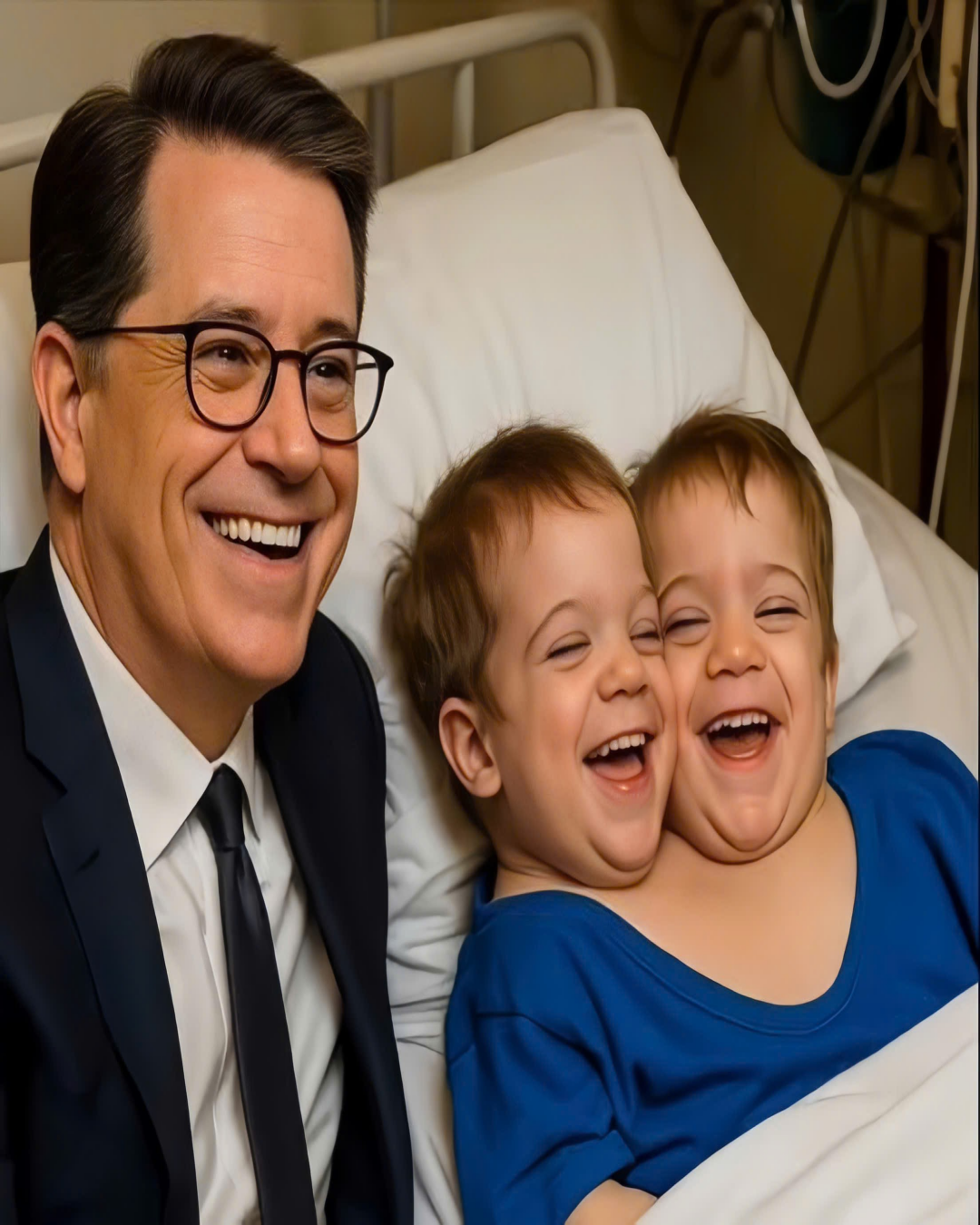Avry’s Brave Beginning — The Fight After Transplant
She woke before dawn.
Three nurses and a doctor surrounded her daughter’s bed, their movements calm but urgent.
Monitors beeped softly — the rhythm of fear and life intertwined.

Avry had spiked a fever in the night.
Her oxygen was dropping, her little body fighting a battle invisible to the eye.
The numbers on the screen told the story her mother didn’t want to hear: dehydration, unstable vitals, exhaustion.
She stood frozen, hands clenched together, praying under her breath.
Jason, the nurse practitioner, was already there — calm, focused, steady.
He didn’t just give orders; he stood shoulder to shoulder with the nurses, checking Avry’s lines, adjusting her fluids, whispering reassurance to her mother.
“Her body’s working hard,” he said gently. “But she’s holding her ground.”
Every word was both comfort and weight.
They started saline to lift her blood pressure.
Every drop mattered.
Every breath was a victory.
In this sterile hospital room, life had narrowed down to numbers — oxygen levels, heart rates, fluid balance.
Each figure could change the course of the day.
Each beep could make a mother’s heart stop for a moment.
Avry was only days out from her transplant.
The window for rejection or complications was wide open.
Every hour brought new tests, new fears.
Her mother had learned to live between them — between hope and dread, between fatigue and faith.Jake, her husband, had left at six that morning for work.
He would be gone for three days a week now — a painful decision they made together.
They needed income, but they also needed him here.
It was never a choice between good and bad — it was always between hard and harder.
Still, she whispered the same mantra she’d held onto since the diagnosis:
We can do hard things.
And she meant it.
Even when she hadn’t slept in five nights.
Even when she was holding Avry’s vomit bag with one hand and wiping her tears with the other.
She cleaned the room again.
Disinfected every surface.
Stripped the sheets.
Bathed her daughter gently, careful not to disturb the tubes that now mapped her small body.
The nurses smiled at her determination.
They saw hundreds of mothers, but few like this one — exhausted yet still inventing ways to make her child more comfortable.When the cooling antiseptic wipes made Avry shiver uncontrollably, she found a way to warm them using a wipe warmer and a biohazard bag.
A simple act of love, but one that drew admiration from the entire staff.
“Only a mother would think of that,” one nurse whispered.
She smiled faintly. “Mothers of warriors have to.”
Days blurred together.
Saturday came, and the night brought another storm.
At 10:30 p.m., just as she was drifting to sleep, she noticed Avry’s oxygen dipping again.
The numbers slid down slowly — 94, 91, 88.
No one came.
She waited, heart racing, until she couldn’t anymore.
When the nurse finally entered, they started oxygen immediately.
Avry’s face relaxed.
Her chest eased.
By 2 a.m., they were taking X-rays.
By 4, the results showed fluid buildup.
Lasix was ordered — a medicine that forced her fragile body to drain the excess.
Then came the vomiting and diarrhea, again and again, until the room felt like chaos.
She cleaned, scrubbed, comforted, and prayed.
When Avry’s feeding tube came up with the last bout, she sobbed.“Mama,” Avry whispered through tears, “I tried so hard to hold it down. I made a mistake.”
How could a child so small speak with such grace in pain?
Hours later, when it was time to replace the tube, Avry surprised everyone.
She asked to try it herself.
Her mother froze.
The nurses exchanged doubtful glances.
Even Jake looked hesitant.
But Avry sat up straight, eyes clear, voice steady.
“I got this,” she said.
She took the tube in her hand, guiding it carefully up her nose and down her throat, swallowing between each inch.
No tears.
No panic.
Only courage.
The nurses watched in awe.
Even teenagers couldn’t do that, they said.
In thirty years of pediatric oncology, none had seen anything like it.
When it was over, Avry looked up, eyes shining.
“See? I told you I could do hard things.”
And she had.
By morning, the doctor smiled softly. “She’s stable,” he said.
Not completely out of danger, but stronger.
Still, her liver numbers looked off, her fever had returned, and her body was fragile.
They gave her more steroids to keep her organs calm.
The side effects masked the truth — she looked better, but her system was still fighting for balance.
Yet when her mother looked over, Avry was sitting upright, coloring quietly.
They talked about snow, sleigh rides, baby goats, and Christmas mornings.
For an hour, it was as if the hospital disappeared.
That small hour — crayons, laughter, and dreams — was worth every sleepless night.
Later that day, Jake had to leave for work again.
Her other son, Trace, was off with friends — playing, laughing, being a child far from the heavy air of hospital rooms.
She smiled thinking of him — grateful for the people who stepped in to give him those moments of joy.
“The best way to love me,” she often said, “is to love my kids.”
And those who did — Ethan, Burke, the nurses — were gifts she’d never forget.
The toll on her own body was showing.
Dehydration.
Low blood pressure.
High cortisol.
Her reflection in the mirror told the story — dark circles, hollow eyes, trembling hands.
But she kept going, sustained by something deeper than sleep — faith.
Every night she whispered the same prayer:
“Lord, give me strength for just one more day.”
Because every day mattered.
Every moment Avry smiled was a miracle.
That evening, she finally gave in and went home for the night, leaving Jake to watch over Avry.
Her body needed rest.
Her heart needed quiet.
She climbed into bed and whispered a prayer that Jake’s night would be uneventful.
Then, before sleep came, she wrote what had been on her heart all week.
About compassion.
About showing up.
About what it means to truly love.
She remembered the words of a pastor who once said, “We don’t know how to relate, so we don’t know how to help.”
And she thought — if that were your child, would you say the same?
Because Jesus never avoided the broken.
He sat with them.
He didn’t turn away because He couldn’t relate.
He drew closer.
Love, she realized, doesn’t need answers.
It only needs presence.
The greatest letdown isn’t when someone can’t fix your pain — it’s when they disappear the moment you reveal it.
She wrote about empathy — the kind that listens, not the kind that solves.
The kind that shows up with quiet hands and an open heart.
Because compassion isn’t complicated.
It’s simply human.
And through Avry’s journey, she’d learned that healing doesn’t always come from medicine — sometimes, it comes from love that refuses to walk away.
When she shared their story, she didn’t do it for attention.
She did it because she believed in purpose — that God shapes hearts through pain, molds faith through fire.
“If you’re not being tested,” she wrote, “maybe it’s because you’re not a threat to the darkness.”
Her family’s journey was brutal, but it was also holy.
Because through it, they had learned what it means to endure — and what it means to trust.
As she closed her laptop that night, she looked at a photo of Avry smiling in her hospital bed, one hand holding a crayon, the other gripping her IV pole.
A warrior.
A teacher.
A miracle in motion.
And she whispered —
“We can do hard things.” 💖
The Brave Little Girl Who Fought Pediatric Cancer and Left a Legacy That Will Inspire Generations.1455
Sass the size of Texas, serious headshakes accompanying adamant “NO”s, and a smile so beautiful it would light up a room – these were all things that painted the perfect picture of Nora.
From the moment she was born, Nora’s family noticed her bright eyes and her determination.
But soon, signs of facial weakness appeared.
Doctors diagnosed her with Bell’s palsy and reassured her parents it would improve over time.
Nora’s mom, a certified oncology nurse practitioner, knew in her heart that something was not right.
She insisted on further testing, refusing to accept a simple explanation for her daughter’s condition.
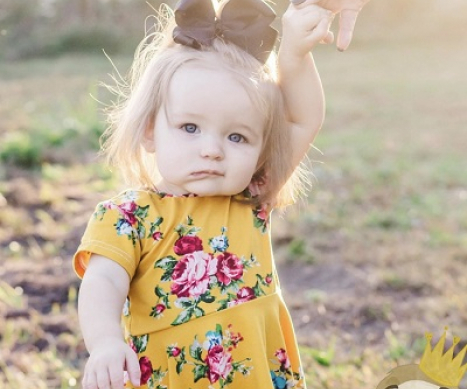
The results were devastating.
Nora had multiple tumors in her brain and spine.
The diagnosis was shocking, leaving her parents in a whirlwind of fear, confusion, and heartbreak.
Despite the unimaginable news, they vowed to fight alongside their daughter.
Nora underwent three rounds of chemotherapy, enduring the painful side effects with a bravery far beyond her months of life.
Every hospital visit was met with tears, prayers, and hugs, as her tiny body endured the harsh reality of childhood cancer treatment.
Her parents captured every moment, every smile, and every small victory on video and in photographs, fearing they might forget the details of their daughter’s short but meaningful life.
For a brief time, it seemed the chemotherapy was working.
There were glimpses of hope, moments when Nora’s laughter filled the hospital room and her energy returned, if only for a few hours.
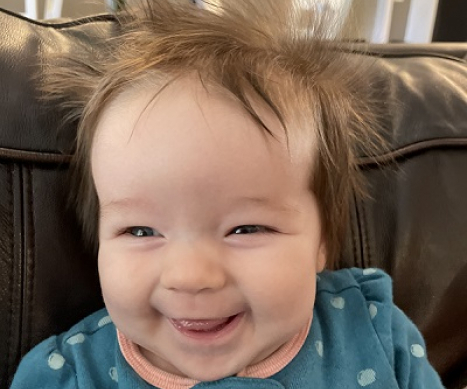
But then, fate struck again.
Nora contracted COVID-19, and her already fragile body could not overcome the infection.
Her passing left a void in the hearts of her family that could never be filled.
In the days that followed, her parents faced a difficult decision.
They chose to donate her tissue to research, hoping that her life could still save or improve the lives of other children facing cancer.
However, despite protocols existing for such donations, hospitals refused to accept her samples due to her recent COVID-19 diagnosis.
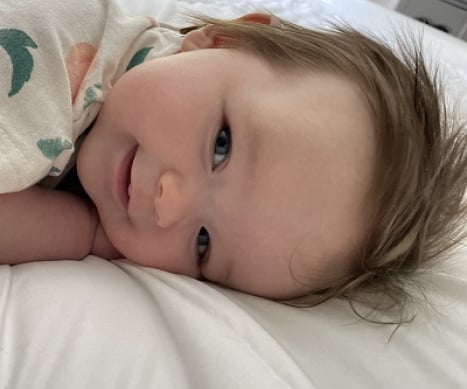
Even in death, Nora faced challenges, yet her family refused to let her memory fade.
Determined to make a difference, they founded the Princess Nora’s Warrior Foundation in her honor.
The nonprofit aims to fund research for pediatric cancer and to assist families navigating the terrifying and overwhelming journey of childhood cancer.
Nora’s courage and spirit have inspired thousands online, her story spreading hope and awareness far beyond her brief life.
Her aunt, Katrina, emphasizes that the journey through pediatric cancer is extremely hard.
She celebrates that Nora is no longer suffering but channels her grief into helping other families still fighting.
Through efforts like Nora’s foundation and the work of Alex’s Lemonade Stand Foundation, Katrina believes awareness and funding can one day lead to a cure.
This summer, Katrina and her family are organizing a lemonade stand competition to raise additional funds for pediatric cancer research.
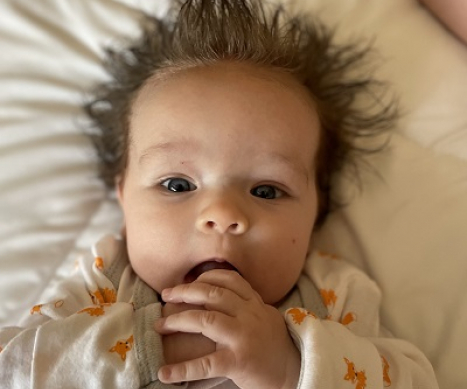
Every donation, every effort, is a way to honor Nora’s legacy and ensure her courage continues to inspire.
Though her life lasted only 14 months, Nora’s impact is immeasurable.
Her laughter, her stubborn “NO”s, her radiant smile, and her indomitable spirit will live on in the hearts of all who knew her and those who learn her story.
Through the Princess Nora’s Warrior Foundation, her family hopes that no child will have to fight alone, and that someday, pediatric cancer will be curable.
Nora’s story is a reminder that even the briefest lives can leave lasting legacies, and that love, courage, and hope can shine brightest in the darkest times.




